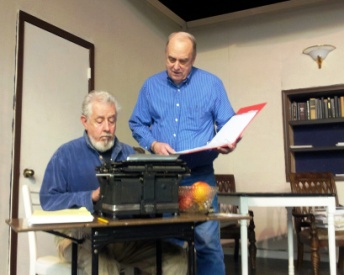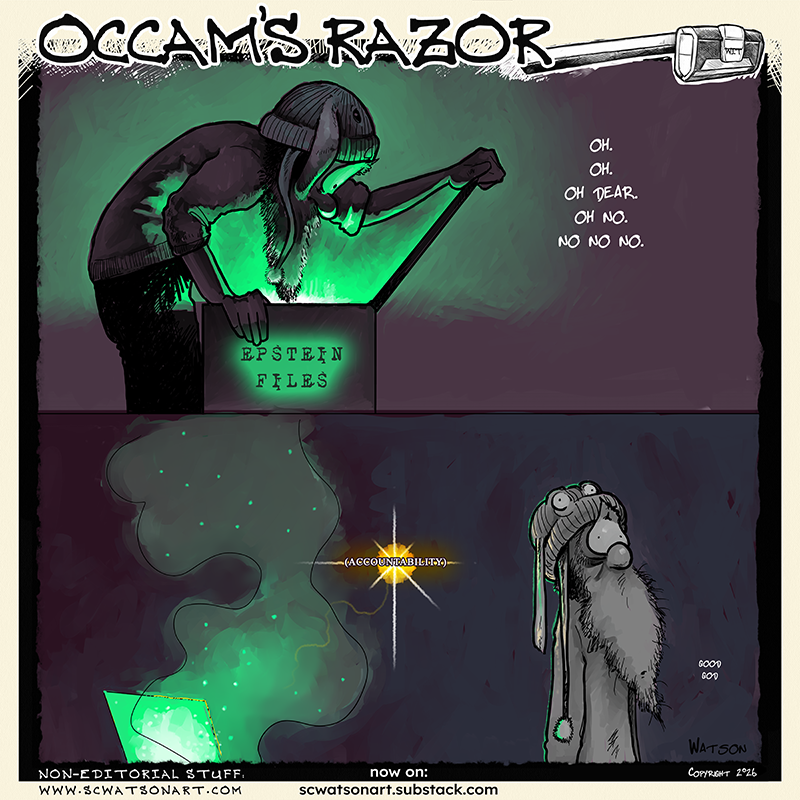— by Margie Doyle —
Doug Bechtel, Founder of Actors Theater of Orcas Island (ATOI), was merely indulging his new-found hobby of theater when he formed ATOI in 1999. Now, it is a lively performance troupe for new and experienced local, regional and national playwrights, directors, actors and stage-crafters, and Bechtel is astounded to contemplate that the non-profit theater “will be here long after I am.”
Bechtel is pleased that many under-40s now flock to casting calls for ATOI productions. About six years ago, Bechtel wanted to attract younger actors so he could mount the first in a series of plays based on the Camelot legend by Seattle playwright Jeff Berryman. He succeeded with a solid cast of 20- and 30-somethings in 2010 and sold-out audiences for “Arthur: the Begetting.”
“I’d been sitting on that play for a number of years, while Indie Zoeller, Zach Knight and Kate Hansen were lining up,” Bechtel says. “With that play we started paying more attention to the social aspect of the theater: we’d come early, run lines, and then stay afterward, socializing in a different environment. It became a niche that worked for them. I found we accomplished as much after formal rehearsal as during them. So I encourage that now.”
Having just produced “Arthur: the Hunt” last fall, Bechtel eagerly awaits the completion of the next play in the series.
The younger casts also brought in the younger generations. “Torso” was dark and challenging and appealed to younger audiences. Bechtel said, “the actors had to travel to dark places in the psyche of their characters and then push their own individual comfort zones.”
Then in late 2012, Lin McNulty’s direction of “Tracers” brought together a cast of Gen-X’ers. Bechtel had his doubts: “I assured Lin that there was no way she would get enough people to play the roles.” She has said she probably talked to every Orcas Island man under 40 in casting the play; and she gathered together a stand-out group of eight new local actors who brought the Vietnam War-era play to the stage at the Grange. The cast, on their own initiative, did research, watched films about post-traumatic stress, and participated in a “sweat lodge” spiritual practice to prepare themselves for “Tracers.”
Bechtel is proud of the talents he has brought along in many newcomers to the theater. He says he’ll gamble on an inexperienced actor’s ability to pull off a role, “but I have to have a sense that they’ll rise to the challenge. You have to work to make it work.”
One of the new young actors, Cara Russell, said recently, “Young people have found a community at Actors Theater and so they keep coming back for more.”
Bechtel also says that Actors Theater’s success has been due to “backstage” factors: the sets and production and other behind-scenes coordination. He speaks of those who have labored unstintingly in set painting, costumes, props, lighting and sound: “Patty Monaco has decorated more of our sets than everybody else put together; Paula Capitano and Kathy Walsh are unique in crafting props and making costumes; likewise Vince Monaco’s artwork, both as set decoration and as part of the set itself; and Jacqueline Kempfer’s rendering of the art for for “Love, Loss and What I Wore.”
He also applauds the late Maria Massey for her efforts in publicity and promotion, and ongoing work by Lin McNulty in programs and graphics, Kate Hansen for technical work and Cara Russell in taking on, for the second year in a row, the production behind the Ten-Minute Playfest. coming up later this spring.
Now he says his challenge is two-fold:
1) to put actors in roles that are demanding to keep them interested. While comedy draws a better audience than drama, Bechtel says it’s the comedies with a serious underlying story that he’s most attracted to “My over-riding concern is doing things that challenge me — and excite young people.”
2) to develop directors and technical talent people. Bechtel describes himself as a self-taught director, who learned about stage lighting and sound production by doing. In 2008, he won a slot as a director intern at Lincoln Center in NYC. The experience gave him confidence to tackle more offbeat or challenging plays; such as “Torso.” In the past two years he’s branched out to directors of ATOI productions Melinda Milligan of “Almost, Maine,” and Lin McNulty, and he says he’s now more comfortable letting others do more directing.
Beyond acting and directing, he hopes to develop producers, costumers, set-builders, sound and lighting professionals and playwrights. He says, “I’d learned by doing, and by being a people person. I’ve never been afraid of small audiences but I don’t want to do the same plays over and over.”
While ATOI hasn’t made a lot of money, Bechtel says it has never lost money on a single production.
Bechtel has also been busy refurbishing the Grange building where ATOI stages most of its plays over the years. Last year’s campaign to install new seats brought him the greatest surprise so far.
The hearty response to the fund-raising effort was impressive, he says, “People want to have a piece of ATOI, of owning its success, whether with a name on the arms of the chairs, or on plaques on the walls.” Enough people contributed to purchase new seats that ATOI was able to afford a higher quality of seats than originally planned.
“I never would have thought we’d have such public support for that project.”
Now celebrating its 15th year, Bechter says of Actors Theater: “We go out of our way to include everybody. At auditions, I always assign a ‘greeter,’ so nobody feels left out. We make a conscious effort to reach a broad cross-section of the island community, whether it’s in technical support, costumes, set design or building, props, posters, programs or fund-raising. We’re constantly evolving, not just as theater, but as a social event.”
**If you are reading theOrcasonian for free, thank your fellow islanders. If you would like to support theOrcasonian CLICK HERE to set your modestly-priced, voluntary subscription. Otherwise, no worries; we’re happy to share with you.**










Doug has more than succeeded in bringing true community theater to Orcas.He has created many fond memories for those of us who have been lucky enough to be part of his productions. Thanks again Doug.
The Actors Theater is a fabulous resource for creative and technical artists and for the public! I appreciate Doug’s comment that ATOI will be around long after he is, but I hope his tenure will live long and continue to prosper.